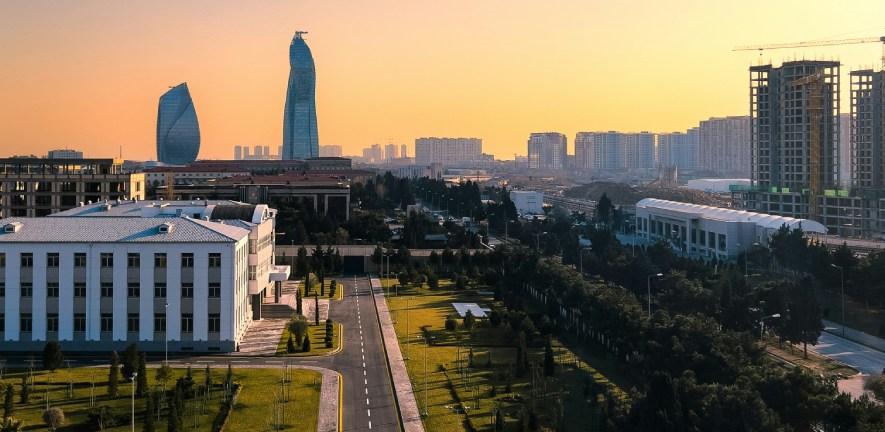
29 November 2024 – The UK's enhanced presence, effort and ambition at COP29 was keenly felt by other countries and observers at the Summit, writes Beverley Cornaby from CISL's Corporate Leaders Group in BusinessGreen.
If there's one message the UK government wanted everyone to take away from their presence at COP29, it was: 'we are back'.
The government announced its presence by making the UK the first of the G7 nations to publish a new 2035 emissions reduction target. It followed that with a slew of announcements, the majority aimed at supporting developing nations with funds for a range of priority areas including the energy transition, adaptation and preventing deforestation.
The UK's leadership didn't go unnoticed. During the Summit in Baku, many of those I spoke to on the ground mentioned how great it was that the UK was back leading. Having been asked repeatedly "is the UK no longer a leader?" at COP28 last year, this year marked a 180-degree turnaround.
While, as usual, the final stages of the negotiations were fraught and went beyond the scheduled end point, the UK was noted as being an outlier among the developed nations. In the final stages all eyes were on whether developed nations would shift in agreeing to a significantly higher new annual finance goal to support developing nations in tackling climate change, with a new goal of $300bn annually being agreed at the 11th hour on Saturday night. Even though the UK wasn't outwardly vocal during the last stage of these negotiations, after the close, the COP29 President Mukhtar Babayev, who led the negotiations, called out the UK as being an exception amongst the developed nations in stepping up and calling for greater ambition.
This is not without significance. Going into COP29, much of the discussion was on how the result of the US election, and the public knowledge that Trump plans to pull the US out of the Paris Agreement as soon as he takes office in January, was going to impact the final outcome. With further concern arising when Argentina ordered their delegation home in the first week, many were worried this COP was not going to deliver. However, the UK coming forward at the time it did (with the UK Prime Minister being one of the few heads of government present) put a much needed boost into the early stages. While few other countries came forward with new targets themselves during COP29 – just Brazil and UAE announced their new 2035 targets – the UK has set a high bar to follow.
Over the coming months, it is vital the UK build on this, both through calling for other countries to announce ambitious 2035 targets and through domestic implementation. If the UK can show up at COP30 next year with a strong track record and evidence base for how it is delivering against its targets domestically, it will be able to go into negotiations next year with an even stronger hand. To do this means fast tracking climate action – something the government has already begun over the summer and needs to keep doing to demonstrate consistency and help unlock much needed investment.
This will be no easy task given the UK is not yet on track to meet its 2030 targets. Delivering against its 2030 clean energy mission will be key to this. Speaking with me at COP29, Chris Stark, head of mission control for clean energy, made it clear that while it's not without its challenges, the UK's clean energy mission should be deliverable. We already have enough new energy projects in the pipeline – the challenge will be getting them all built and connected to the grid within the next five years.
Industry will be another key area – not least through the UK's Invest 2035 industrial strategy due in the Spring, where business can take a leading role in delivery. While the business presence at COP was questioned from a range of different sources, it is impossible to see how economies can shift to clean growth without private sector investment and action. The multiple examples of business action that were highlighted through events and roundtables demonstrated how businesses are supporting governments to meet both climate and nature targets. This is another area where the UK is taking a lead, with many UK businesses at COP standing alongside the government to call for more ambitious targets and accelerated action, and for regulatory barriers to implementation to be removed.
While the overarching COP29 outcome may once again be not quite what was hoped for, but still good enough, the UK can certainly declare its own presence successful. It has thrown itself firmly back into the ring, taking a lead that has been felt both behind closed doors and in the public eye. The challenge now in ensuring globally all countries deliver against the terms of the Paris Agreement, is for the UK to maintain and build on this position, by not just being a leader, but ensuring the rest of the world follows its lead.
First published in BusinessGreen





